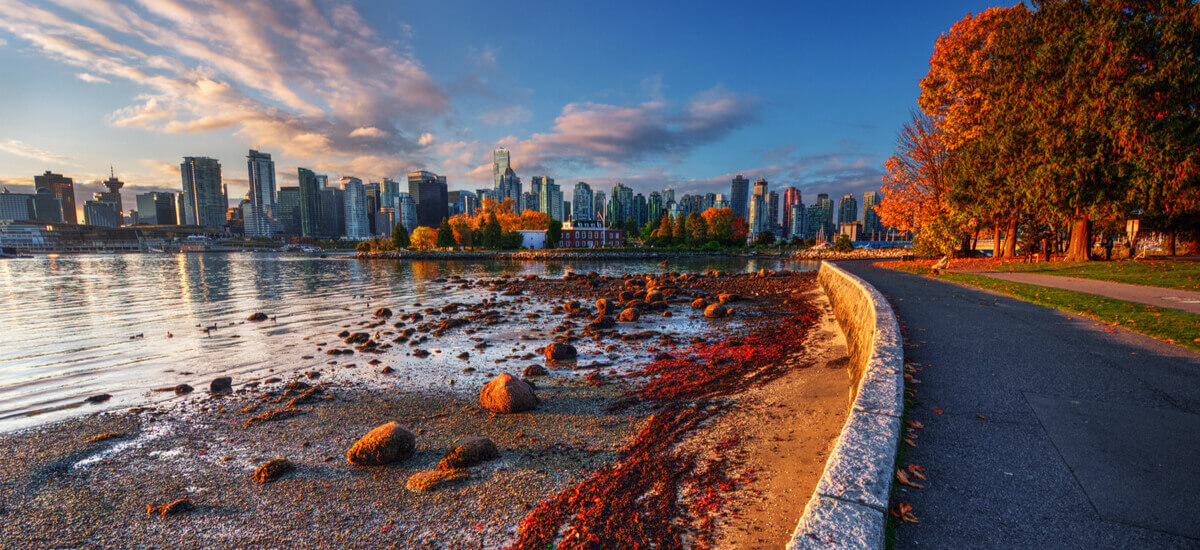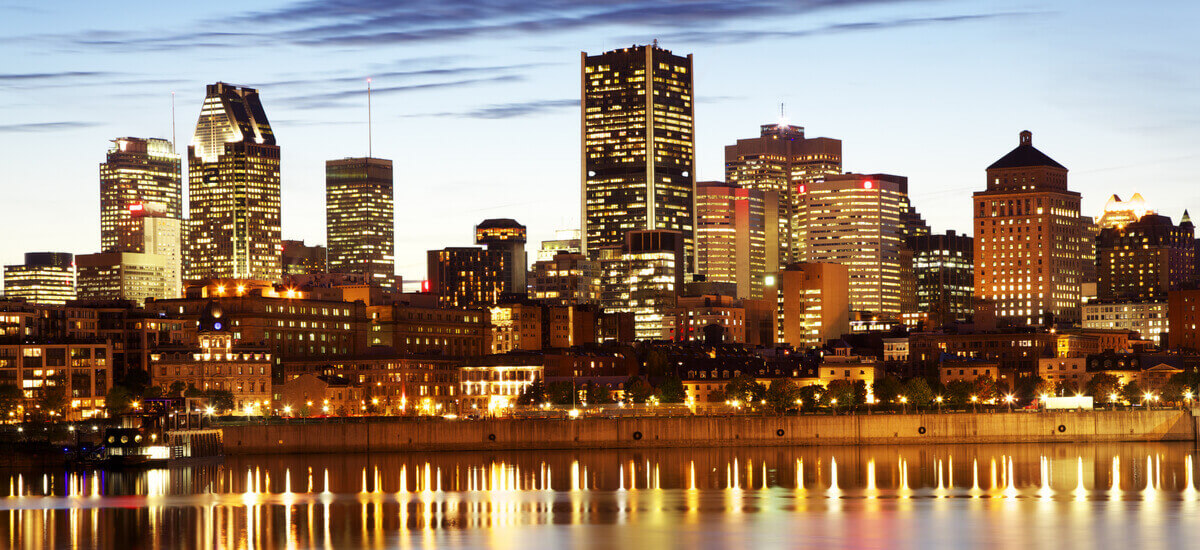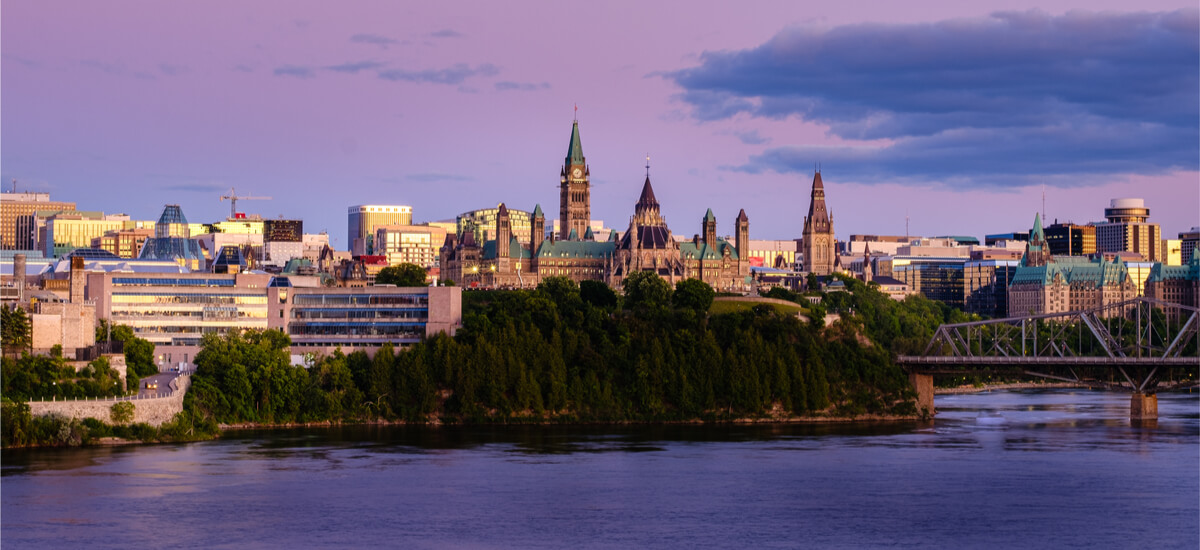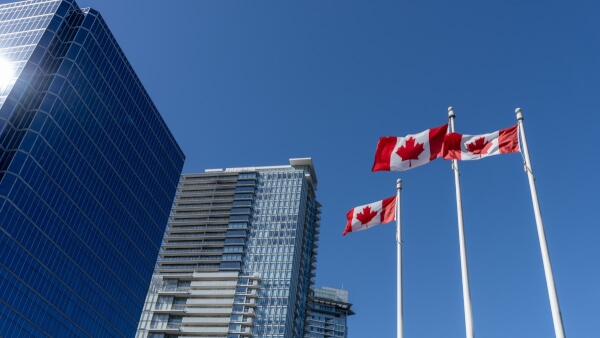How to buy land in Canada as an American
Interested in buying land in Canada? Here’s everything you need to know about buying a plot of land abroad as an American.

Universal healthcare, a socially progressive government, a reputation for kindness and a geography perfect for hikers, skiers, sailors, photographers and urbanites alike. It’s easy to see why so many people from around the world have considered moving to Canada.
If you’re among those who have decided to take the plunge, one of the first steps is figuring out how much it will cost to move, and how much it will cost to live once you get there.
This guide will walk you through everything you need to know about the cost of living in Canada, so you’re ready to hit the ground running.
The currency used in Canada is the Canadian Dollar. It’s typically just referred to as dollars or by their slang name, “loonies.”
While in Canada it’s most common to denote money with just a dollar sign ($), it’s sometimes written as C$ or Can$ to distinguish it from other dollar-based currencies. It’s also sometimes written as CAD.
Let’s start with some basic costs (in US dollars) across Canada and 3 major US cities, to give you an idea of general pricing for day to day expenses. These costs do not cover rent — we’ll look more at housing costs later.
| City | Average monthly cost for 1 person | Average monthly cost for a family of four |
|---|---|---|
| Montreal¹ | 878 USD | 3,239 USD |
| Ottawa² | 952 USD | 3,457 USD |
| Toronto³ | 963 USD | 3,494 USD |
| Vancouver⁴ | 941 USD | 3,460 USD |
| New York⁵ | 1,356 USD | 4,979 USD |
| Boston⁶ | 1,149 USD | 4,125 USD |
| Los Angeles⁷ | 1,061 USD | 3,836 USD |
Note: Data correct at time of research 9 February 2022

If you’ve been looking for a quick, cheap and secure way to send money to Canada, you’ve just found it.
Wise offers the mid-market exchange rate for all your transfers and shows you upfront how much each transaction will cost you.
Avoid being ripped off by your bank and save up to 6x when making a Wise transfer.
With the cost of living in mind, the other major financial consideration is how much you’ll make. Depending on where in Canada you choose to settle, your salary could differ massively as employers compensate for the cost of their city.
If you’re not planning to keep your job back home, the following tables will give you an idea of what kind of salary you can expect in your industry in key Canadian cities:
| Job | Montreal⁸ | Ottawa⁹ | Toronto¹⁰ | Vancouver¹¹ |
|---|---|---|---|---|
| Dentist | 96,585 USD | 122,926 USD | 82,926 USD | 73,170 USD |
| Finance manager | 58,395 USD | 55,385 USD | 68,629 USD | 58,395 USD |
| Software engineer | 52,127 USD | 56,009 USD | 57,673 USD | 57,673 USD |
| Nurse | 34.441 USD | 43,387 USD | 46,965 USD | 46,516 USD |
| Chef | 28,620 USD | 26,489 USD | 31,969 USD | 42,930 USD |
Note: Data from Teleport, correct at time of writing — 9 February 2022
Let’s move on to the details — how much does daily life usually cost in Canada?
No matter where in the world you move, rent is always going to be one of the biggest items in your budget, typically taking up 35% to 50% of your monthly expenses.
The following tables detail rent prices across four of Canada’s biggest cities.
Here’s a rundown of the average monthly rental cost of different property types in key Canadian cities, all shows in USD for convenience:
| City | 1 bed apartment in city center | 1 bed apartment outside of city center | 3 bed apartment in city center | 3 bed apartment outside of city center |
|---|---|---|---|---|
| Montreal¹ | 1,005.06 USD | 735.58 USD | 1,800.31 USD | 1,274.85 USD |
| Ottawa² | 1,280.15 USD | 968.80 USD | 2,167.57 USD | 1,624.24 USD |
| Toronto³ | 1,592.83 USD | 1,365.54 USD | 2,764.76 USD | 2,211.81 USD |
| Vancouver⁴ | 1,674.23 USD | 1,340.17 USD | 3,299.72 USD | 2,341.59 USD |
Note: Data correct at time of writing — 21 February 2022
Prefer to buy a place as an investment or to live in while you’re in Canada? Here are the approximate costs of homes in major cities. Again, we’ve kept the data in USD to make it easier to build a budget.
| City | Price in city center (sqft) | Price outside of city center (sqft) |
|---|---|---|
| Montreal¹ | 547.06 USD | 282.39 USD |
| Ottawa² | 405.36 USD | 282.38 USD |
| Toronto³ | 838.28 USD | 681.56 USD |
| Vancouver⁴ | 890.74 USD | 655.35 USD |
Note: Data correct at time of writing — 21 February 2022
One of Canada’s major attractions is the free healthcare system, meaning you won’t pay any direct fee for doctors’ visits, the dentist, getting your eyes checked, going to the emergency room, or any other medical visit.
As with the majority of countries with this type of healthcare, it’s funded by the country’s tax system. The average person pays about 4,222 CAD per year to maintain the no-cost system, while a family of four pays about 11,735 CAD.
Though taxes at that level can seem pretty high to foreigners, all in all Canadians mostly agree it’s not too much to pay for the relatively limitless healthcare system.
Much like their southern counterparts in the US, Canadians tend to drive everywhere. That being said, the popularity of biking to work is increasing.
In fact, some neighborhoods in Halifax, Vancouver, and Quebec City see 20% of commuters getting to work by bike, though this statistic dips significantly through the cold winter months.
In major cities it’s also fairly common for residents to use public transport, buses and trains, though automobiles remain king in the Canadian commute. It’s also worth noting the prevalence of air travel, as Canada is a large country and cars and trains don’t suffice for some longer trips, especially coast to coast.
Like most other countries, Canadians enjoy a free public school system for children up to age 18. For higher education, prices in Canada are relatively low compared to universities in the US, though they’re somewhat less affordable than European countries where universities are often subsidized by the government.
Moving abroad is always going to be expensive. However, exactly how much you’ll need to pay will depend a lot on how you intend to manage your move.
If you’re traveling light and will be taking everything with you in your vehicle or as luggage your costs will be pretty low. However, shipping your entire household goods will naturally cost an awful lot more.
Online estimates of moving costs range from a fairly low 1,500 USD through to over 7,000 USD based on where you’re traveling from and the volume of goods you need to move.
The easiest way to see how much it will cost to move from the US to Canada in your case is to get a quote from a cost comparison site or local relocation agency where you live.
| 🎯 Here are a couple of options to try in the first instance |
|---|
It’s a great headline — but for most US citizens moving to Canada the reality is that the Canadian government is not going to pay them to do so.
The program which likely generated the idea that Canada was paying people to move there is a Graduate Retention Program which is in place in Saskatchewan¹². The criteria for this program include that you’ve graduated recently from a qualified higher education institute and come to live in the province.
If you’re eligible, it’s true that you could stand to gain up to 20,000 CAD in rebates through tax deductions, which are intended to offset the costs of getting your higher education. However, for most people moving to Canada to live or work, unfortunately the government is unlikely to hand over cash to see you immigrate.
If you’ve been offered a job in Canada or are headed there to study, you may have already decided where to live. However, if your options are open it’s worth doing a bit of research into different locations.
Canada is a big country which means there’s something for everyone whether you prefer a busy city or a rural retreat. Here are a few of the key locations expats tend to live in Canada.

Over on the west of Canada, British Columbia is home to Vancouver, and the province capital Victoria — both of which are common expat destination choices.
The province is said to be the most diverse in Canada, and Vancouver offers the mildest winters of any major Canadian city, with easy access to great outdoor activities when you need a break.
Housing in Vancouver is fairly expensive — but depending on your personal preferences and choices you may still be able to live well, for less, compared to many major US cities.

Montreal is in Canada’s Quebec province — a French speaking area. It’s a beautiful city which is safe and has a long and rich history. English is spoken by many people here, but if you want to move here in the long term you’ll probably benefit from learning French.
Montreal is one of the cheaper cities in terms of rent, but has competitive salaries compared to other cities in Canada — making this a good choice for expats who want to come to Canada to progress their career while enjoying a great quality of life.

As Canada’s capital, and a city known for being clean, safe and easy to live in, naturally lots of expats choose Ottawa as home. There’s plenty to do for those who love museums, art and culture — and it's easy to get to the great outdoors too.
Despite being the capital, costs of living are relatively low compared to other major Canadian cities. You’ll find a better range of affordable housing for example, which can make a big difference to your budget overall.

Toronto is the largest city in Canada, situated on the Northwest edge of Lake Ontario. It has a number of advantages for US citizens looking to move to Canada — including the fact it’s only a short drive to the US border when you want to head back for a break.
Toronto's climate is relatively mild, and with a multicultural population you can bet on there being plenty to do year round. Costs of living are on the high side — including both consumer prices and rent.
While there are lots of job opportunities for immigrants, it’s not necessarily the highest paid place to find work, either.
Canada has always been known as a great place to live, and depending on where you choose to settle you may find the country very cheap for the relatively high quality of life.
Even in the largest cities, Canada tends to be more affordable than most European cities, and they don’t even have Tim Horton’s, hockey or mountains.
No matter where in Canada you decide to live, good luck with your move!
Sources:
Sources checked on 02.21.2022
*Please see terms of use and product availability for your region or visit Wise fees and pricing for the most up to date pricing and fee information.
This publication is provided for general information purposes and does not constitute legal, tax or other professional advice from Wise Payments Limited or its subsidiaries and its affiliates, and it is not intended as a substitute for obtaining advice from a financial advisor or any other professional.
We make no representations, warranties or guarantees, whether expressed or implied, that the content in the publication is accurate, complete or up to date.

Interested in buying land in Canada? Here’s everything you need to know about buying a plot of land abroad as an American.

Thinking about moving to Canada? Find out what you need to know about renting in Canada in this guide.

Everything you need to know about getting an Investment Visa (Golden Visa) in Canada.

How does universal health care work in canada? Is it free? Find the answer to this and more questions in this handy guide.

Expecting a new baby can quickly become stressful if you’re a foreigner living abroad. Every country has its own complex healthcare system. As an expat, you...

The Great White North is a popular destination for tourists from all over the world, as well as expats. With its progressive politics, stunning natural...